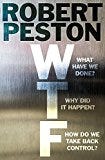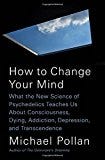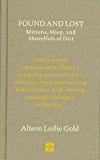Writers' bibliotherapy refers to authors writing about their personal journeys of grief, bereavement and healing; their need to heal manifesting through their writing. Their raw accounts give birth to these prolific texts that touch our hearts and souls.
The same writing, essentially the writer’s bibliotherapy, relieving them of the heartache they hold onto. Some of the best writing and magnum opuses were created by authors confronting their pain through writing. Here they are:

1. Wild by Cheryl Strayed
A twenty-two year-old Cheryl Strayed captures the life-changing moments that set her on a solitary one-thousand-mile plus hike of the Pacific Crest Trail starting from the Mojave Desert through to California, Oregon and Washington.
Motivated by her need to make sense of the loss of her mother and her failed marriage she embarked on this remarkable journey. This incredibly personal account, filled with humour and suspense at every turn, tells a story of healing in the face of significant challenges and terror on the trail. Selected for Oprah’s Book Club 2.0 Wild is Cheryl’s bibliotherapy, a story that she had to tell for the sake of personal redemption.

2 . WTF by Robert Peston
Robert Peston, the political editor for the UK’s ITV (one of the four major British TV networks) writes a highly personal account of his thoughts and feelings post the infamous Brexit vote (where the UK voted with a 52% majority to leave the EU) in the form of 2 letters to his father, who recently died, recounting what had become of his beloved Britain. The book, titled ‘WTF’, details what Peston believes as the causes that led to the unexpected vote including existing fractures in society, the policies that desperately required fixing, the manipulation of social media, the wealth inequality that persists and what the future might hold. The need to recount this in meticulous detail to his father was Robert Peston’s final attempt to connect with his father, to have the one last conversation and perhaps find some closure through his work, his bibliotherapy.

Grab your copy here.
3. The Diary of a Young Girl by Anne Frank
A striking self-portrait of a confident, intelligent young lady trapped in a make-shift home during Nazi occupation living in dire conditions. The diary captures her reflections, her fears, her close relationship with her father and her hope for the ‘goodness’ in all people despite the state of her home and country at the time. This is the ultimate journal and bibliotherapy of a young writer who conscientiously captures the the tragic loss of life whilst quietly coping with the day-to-day feelings that any teenager working through adolescence faces.

4. How to Change Your Mind: What the New Science of Psychedelics Teaches Us About Consciousness, Dying, Addiction, Depression, and Transcendence by Michael Pollan
Michael Pollan, a prolific writer on food, a Knight Professor of Journalism at UC Berkeley and a long-time contributor to the New York Times magazine talks about his new book which discusses the potential benefits of psychedelics on the mind and their ability to fundamentally cure chronic mental and physical illnesses. The book called How to Change Your Mind: What the New Science of Psychedelics Teaches Us About Consciousness, Dying, Addiction, Depression, and Transcendence is largely inspired by his dying father who struggled and died from terminal cancer before the book was published. When you read the book, dedicated to his father feels like Pollen’s bibliotherapy, with every page reflecting his father’s memory amidst fascinating details on psychedelics.
Recent research suggests that psychedelics could amplify the power of psychiatry comparable to what the ‘microscope did for biology’ or ‘the telescope for astronomy’ as quoted by Stanislav Grof. The book offers hope to readers that one day psychedelics might help treat people with life-threatening conditions such as cancer or difficult mental illness: Pollen, through his writing, offers hope and respite to others as a tribute to his 88-year old father. Compelling and beautifully written.

5. Found and Lost: Mittens, Miep and Shovelfuls of Dirt by Alison Leslie Gold.
The New York Review of Books discusses It is the first time that Gold discusses her own life after spending years narrating other people’s stories of the Holocaust. In this memoir, she takes us back to her childhood where her need to save objects, stories and people landed her a role at the school ‘Lost and Found’ room. Her memoir crafted as a series of letters discusses aging, friendship and loss — and through the act of writing relieves herself of the grief and sadness she has been holding onto all these years. The book also chronicles the defining moments that made her the writer she is today.

Grab your copy here.
Are there any other authors and books I should mention here? Feel free to add to the list by commenting below!
More book prescriptions can be found at our A-Z of Book Prescriptions.
A big hello and thank you for reading! Passionate about literature, psychology, and life I launched Book Therapy as an alternative form of therapy using the power of literature. I train mental health professionals, librarians, teachers as well as readers on using bibliotherapy in their own work through our online Bibliotherapy, Literature and Mental Health course. We also curate reading lists/personalised book prescriptions for clients based on their individual needs. This is our signature personalised reading service.
You can also check out Book Therapy’s other free reading lists and A- Z of book prescriptions (covering both fiction and non-fiction). These suggest books based on your existing life situation (e.g. anxiety, job change, relationship heartache) as well as interests (e.g memoir, historical fiction, non-fiction, crime etc). There’s also a Children’s A — Z of Book Prescriptions. Feel free to check out the blog for more literary gems. There’s also a post on my personal story of how I entered the world of bibliotherapy and book curation.
In this role, I have had the opportunity to publish a book called The Happiness Mindset, and write various literary essays and pieces for newspapers and magazines. I have undertaken bibliotherapy workshops for The United Nations, various libraries in New York and corporate organisations in the UK and US. My book recommendations have featured in the Guardian, Marie Claire, NBC News, Asian Voice, New York Observer, Sydney Telegraph and various other publications. If you are a parent you might enjoy a podcast I’ve recorded with speech and language therapist Sunita Shah on Raising A Reader & Storyteller. And if you’d like to connect, email me at bijal@booktherapy.io or www.booktherapy.io.
Book Therapy is a participant in the Amazon EU, US and Canada Associates Programme, an affiliate advertising programme designed to provide a means for sites to earn advertising fees by advertising and linking to Amazon.co.uk, Amazon.com and Amazon.ca
